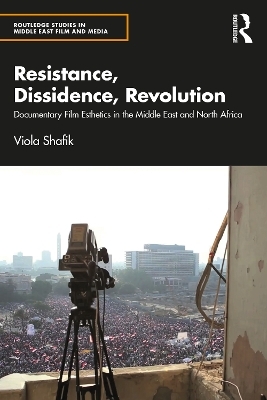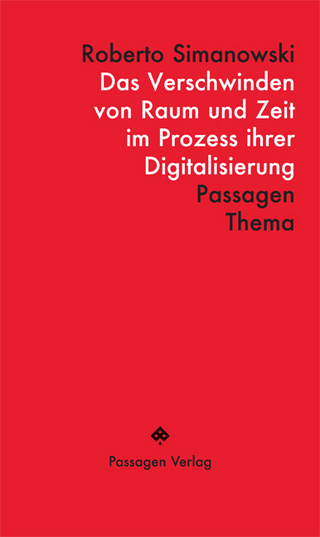
Resistance, Dissidence, Revolution
Routledge (Verlag)
978-1-032-15191-5 (ISBN)
Situated within an emerging academic interest in documentary film in the Middle East and North Africa, this book studies the development of diverse documentary forms in relation to revolutionary and emancipatory movements that took place across the twentieth century in the so-called Arab World.
Inspired by Deleuze and Guattari’s image of a “rhizome,” the author takes a de-territorialized approach to revolutionary filmmaking, embracing the diversity and fluidity of revolutionary works in the “Arab World.” As well as outlining the documentary film histories of the main film-producing nations of the region – Syria, Lebanon, Palestine, Egypt, Tunisia, Algeria and Morocco – the book analyzes the formal and esthetic features of individual works in relation to specific socio-political historical developments. Topics addressed include de-colonization, the wars of liberation, the Tricontinental movement, the Palestinian question, the Rif Uprising, the Leaden and Black Years, civil war in Lebanon, the recent Arab revolutions, state authoritarianism and totalitarianism, gender, collectivism and political subjectivity. Ultimately, the book contributes to a general theory of revolutionary documentary film forms by studying the works of consecutive periods from different ideological contexts.
The book is much-needed reading for students and academics interested in film and media studies and the history, culture and politics of the Middle East and North Africa (MENA) region.
Viola Shafik is a filmmaker, curator and film scholar. She is the author of several books on Arab cinema and has taught at the American University in Cairo, Egypt, Zürich University, Switzerland, Humboldt University, Berlin, Germany and Ludwig Maximilians University, Munich, Germany. She has also worked as a consultant for numerous international film festivals and film funds – such as La Biennale di Venezia and the World Cinema Fund – as well as directing documentaries including My Name Is Not Ali (2011) and Arij — Scent of Revolution (2014).
Introduction 1. Cameramen, their Heroes and the Expansion of Time 2. Voice of the People or Voice of Authority? 3. Encrypting Revolution 4. Wars of Liberation, Wars of Publicity 5. Authorial Dissidence 6. Direct Cinema in Excess 7. Film Collectivism's Revolutionary Scope 8. A Subjective Revolution? 9. Staging and Performing (Gendered) Resistance 10. Cinematic Archeologies and their Archives Instead of a Conclusion
| Erscheinungsdatum | 28.03.2023 |
|---|---|
| Reihe/Serie | Routledge Studies in Middle East Film and Media |
| Zusatzinfo | 84 Halftones, black and white; 84 Illustrations, black and white |
| Verlagsort | London |
| Sprache | englisch |
| Maße | 156 x 234 mm |
| Gewicht | 500 g |
| Themenwelt | Kunst / Musik / Theater ► Film / TV |
| Geisteswissenschaften ► Geschichte | |
| Sozialwissenschaften ► Kommunikation / Medien ► Medienwissenschaft | |
| Sozialwissenschaften ► Soziologie ► Spezielle Soziologien | |
| ISBN-10 | 1-032-15191-9 / 1032151919 |
| ISBN-13 | 978-1-032-15191-5 / 9781032151915 |
| Zustand | Neuware |
| Informationen gemäß Produktsicherheitsverordnung (GPSR) | |
| Haben Sie eine Frage zum Produkt? |
aus dem Bereich


